February 2-8
A review of the main political and social issues in Romania this past week

Corina Cristea, 08.02.2014, 12:11
The IMF, European Commission and World Bank representatives ended their assessment mission in Romania
Romania has complied with 4 of the 5 commitments it made to the IMF since the latest assessment of the precautionary agreement signed last year, head of the IMF mission, Andrea Schaechter has said at the end of the delegation’s recent visit to Romania. A major problem left unsolved though, is the big delay in the payment of the state companies’ debts to suppliers. A solution was found, however, to one of the issues in dispute between President Traian Basescu and the government headed by Victor Ponta, namely, the one related to the increase in the fuel excise duty by 7 eurocents.
The measure is not laid down in the letter of intent to the IMF, but it will be applied as from April 1st. The Prime Minister also announced two decisions with an impact on the economy. The first measure targets people with bank loans. So, pensioners or employees with a maximum monthly income of 1,610 lei, about 360 Euros, and with overdue debts no longer than 90 days, will have their monthly instalment halved for a two-year period. The second measure will be applied in the private sector as from July 1st. In this case, the state will pay half of the total salaries to the companies creating at least 20 jobs.
Election regulations in Romania have been changed
In 2014 the government in Bucharest is preparing for EP elections on May 25th and Romanian presidential elections on November 2nd and 16th. The government has issued an emergency ordinance to make the Election Registry operational and change the law regulating the elections for the European Parliament. The new order issued by the government stipulates that the permanent election lists will be drawn up by mayors based on this registry, which will be used for all types of elections.
The Election Registry, constantly updated by the local authorities, contains the identity data of all Romanian citizens who have the right to vote. Voters may check their names in the registry and also request to be included on the list providing their address of residence. This also applies to Romanian citizens residing abroad or who are on a temporary visit abroad. They may request for their names to be included in the registry along with their latest address.
A final vote was cast on the new draft Constitution
Members of the Parliament Committee in charge of revising Romania’s Constitution cast their final vote on the draft of this fundamental law. The most important amendment is the separation of the prerogatives of the two Parliament Chambers. So, the Chamber of Deputies will mainly have legislative prerogatives, whereas the Senate will be in charge of controlling public institutions and appointing people in leading positions. Major decisions, such as those concerning the national security strategy, will be made by the two chambers assembled in plenary sessions. The MPs will no longer be tried by the Higher Court of Cassation and Justice but by regular courts.
Under the new draft Constitution, the country’s president or 250 thousand eligible voters will no longer need Parliament approval to stage a referendum. Members of the Parliament Committee in charge of revising the Constitution have equally relinquished an article, which allowed the prosecutors to start a 48 hour phone-tapping procedure without a warrant issued by a judge.
The plane crash inquiry continues
The Romanian Parliament has initiated the procedure for passing a new law to regulate the activity of the Special Telecommunications Service, STS. The Government has green lighted a draft law under which the Special Telecommunications Service, currently subordinated to the head of state, should become a specialised department of the interior ministry. The move has been initiated after the Government criticised the manner in which the STS responded during the rescue operations in the Apuseni Mountains. Two people were killed and five injured when a small plane crashed on the 20th of January in the Apuseni Mountains. A Senate’s inquiry committee is also checking the way in which state institutions reacted in this case. The delay with which the relevant state institutions responded has been harshly criticised by civil society, the media and politicians alike.
The Romanian President’s visit to Turkey
Romania’s President Traian Basescu paid a two-day official visit to Turkey, where he reiterated, during talks with his counterpart Abdullah Gul, Bucharest’s support for the country’s accession to the European Union. President Basescu voiced hope that two-way trade exchanges, which are currently worth 5 billion dollars, would double. The two heads of state also analysed the possibility of having F-16 fighter maintenance technicians from Romania trained in Turkey. The F-16 fighters will soon become part of Romania’s Air Force fleet.
Romania reacts to an incident that occurred at the only Romanian high-school in Transdniester
Bucharest authorities criticised the temporary detainment by the pro-Russian separatists in Transdniester, of the headmaster and two other staff members of the only Romanian language high school in Tiraspol, on suspicion of smuggling. Romania sees the incident a deliberate provocation and has called on the OSCE to intervene as soon as possible. Over the past few months the eight Romanian language schools in Transdniester have come under repeated attacks from the pro-Russian breakaway region of Transdniester. This region unilaterally declared independence from Moldova in 1990.
Romania at the Winter Olympics
Romania is represented at the Winter Olympics in Sochi by 24 athletes that will participate in 8 events: alpine skiing, cross-country skiing, biathlon, ski jumping, figure skating, bobsleigh, luge and skeleton. As many as 3 thousand athletes from 90 countries are taking part in the current edition of the Winter Olympic Games.





























